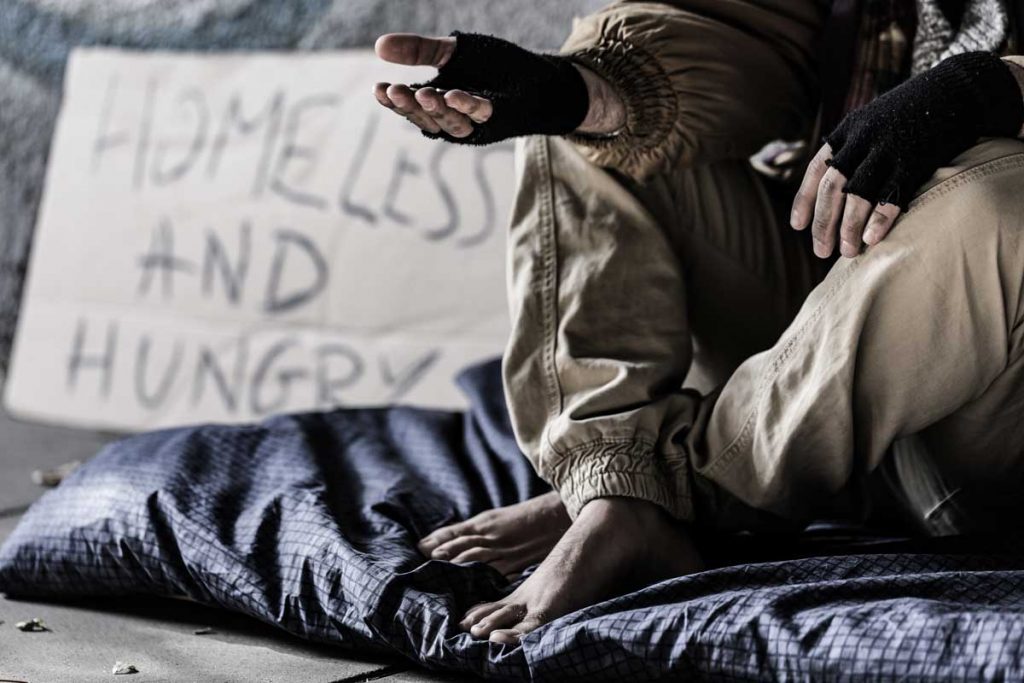World Hunger Day 2019
 May 28, 2019 On World Hunger Day, The Ottawa Mission Is Alarmed by the Increase in Community Hunger Numbers Ottawa, ON – On World Hunger Day, The Ottawa Mission is reporting alarming increases in the need for its community meal program service.
May 28, 2019 On World Hunger Day, The Ottawa Mission Is Alarmed by the Increase in Community Hunger Numbers Ottawa, ON – On World Hunger Day, The Ottawa Mission is reporting alarming increases in the need for its community meal program service.
In 2017 – 2018, on average, the Mission served 1312 meals per day to shelter residents and community members; the total number of meals served was 478,880. Figures just in for 2018 – 2019 show the daily average had risen to 1358 from May 2018 – April 2019, and the total number for that year at 495,360, a total increase of 3.5%. However, for the month of April 2019, the daily total jumped to a daily average of 1468. If this trend continues for the entire year of May 2019 – April 2020, this will mean a total increase in the annual number of meals served to 535,820, a total increase of 11.6% over 13 months.
“In a reasonably affluent city like Ottawa, these numbers are shocking,” noted Ottawa Mission Executive Director Peter Tilley. According to the Ottawa Food Bank, since the 2008 recession, the numbers of food banks and clients accessing them have increased by almost 30%. Furthermore, in 2018, 53,600 Ottawans were food insecure, but only 37,524 accessed a food bank in any given month. Many people are not able to access a food bank when they need to because of available resources, transportation issues, or shame.
“This means that community meal programs such as The Ottawa Mission’s must meet the increasing number of people in our community who are hungry and have nowhere else to turn,” observed Mr. Tilley. The significant increase in the Mission’s community meal program use is likely influenced by the following:
- Food prices continue to rise at a rate higher than inflation. For people on the margins, this can mean the difference between eating at home or relying on community meal programs such as the Mission’s.
- Other community meal programs in the region have been curtailed or closed recently, leaving people who need these programs with fewer options.
- Ottawa has the 2nd highest cost of living in Ontario, with 55,000 households considered low-income. Our community also has some of the lowest vacancy rates and the highest increases in rents in major urban centres across Canada. Housing costs compete for limited funds for those on low incomes, and lack of affordable housing is a main reason why people turn to food banks and other emergency food providers.
Poverty is a major determinant of both homelessness and food insecurity. While poverty rates across Canada and Ottawa have declined recently, this trend has not benefited marginalized and vulnerable populations. According to Canada Without Poverty, poverty, homelessness and food insecurity have a disproportionate impact on those with physical or mental disabilities, who identify as Indigenous, are racialized, seniors, female single parents, and children. These conditions, in turn, further negatively impact health and wellbeing. All of these constituencies use the Mission’s community meal program.
“Given this very disturbing increase in hunger, we urge all levels of government to consider how their policies affect vulnerable populations to ensure that they don’t fall further behind. Poverty reduction, addressing and preventing homelessness, and food security must be urgent priorities,” Mr. Tilley concluded.
FOR INFORMATION, PLEASE CONTACT:
Aileen Leo
Director of Communications
T 613.234.1144 x 305
C 613.712.3092
aleo@ottawamission.com
